
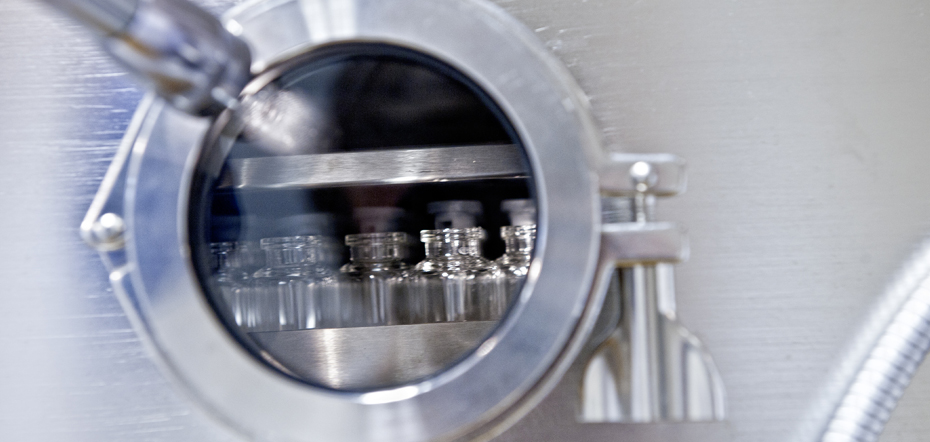

Are you looking for true expert consultancy services in the field of pharmaceutical freeze-drying which cover a broad spectrum of different applications? GILYOS offers comprehensive consultancy services that are straightforward for our customers. Whether addressing a few questions in a special field of interest or taking over the full responsibility for a development project in your company, GILYOS assures flexibility and cost control.
Typical areas of consultancy services encompass the following: formulation development for (bio)pharmaceuticals, troubleshooting for established processes, identifying potentials for process optimization, guidance for scale-up, implementation of PAT. One of the core competences of GILYOS is the compilation of expert’s reports and implementation of complex consultancy projects (e.g. product development support) for freeze-drying.

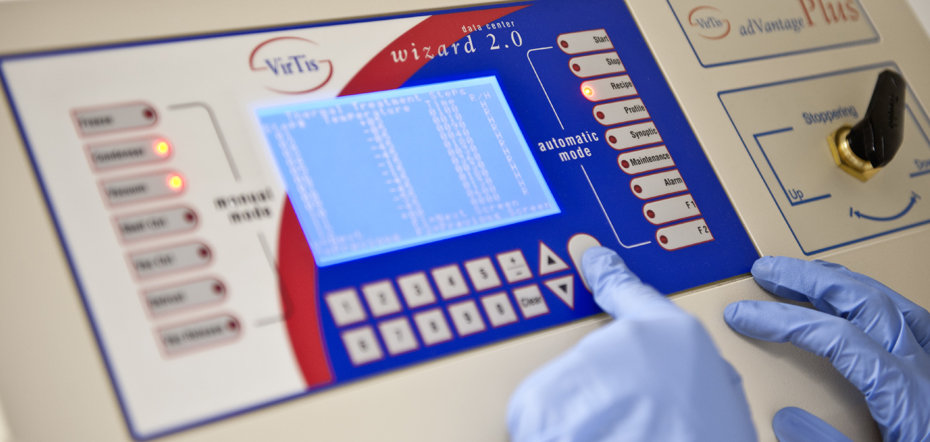

Investment in new freeze-drying equipment requires careful consideration of what you really need in terms of equipment performance to successfully accomplish your product development or routine manufacturing. Such questions are sometimes hard to answer and require a more global picture of the desired products to be developed or manufactured, the given infrastructure of your facility and other factors.
GILYOS offers technical consultancy services to identify important performance requirements of a freeze-dryer, based on the customer drug product formulation (e.g. freeze-drying from atypical container systems, organic solvents, etc.).

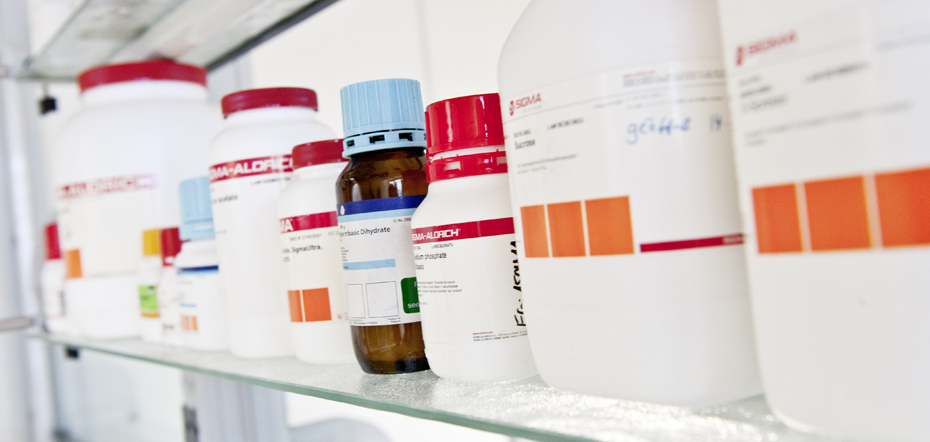

A well-designed and robust formulation is the key to achieve in-process and long-term stability of the active pharmaceutical ingredient (API).
We at GILYOS contribute our sound experience in formulation development (liquid or freeze-dried) of pharmaceuticals and biologicals to support your drug product development. Our expert knowledge is not only limited to proteins and peptides, but also covers colloidal systems and small molecules. While we do utilize fundamental analytical procedures to characterize an API or excipients, for the full range of required analytical testing including GMP analysis we can revert to our strong contract development alliance.

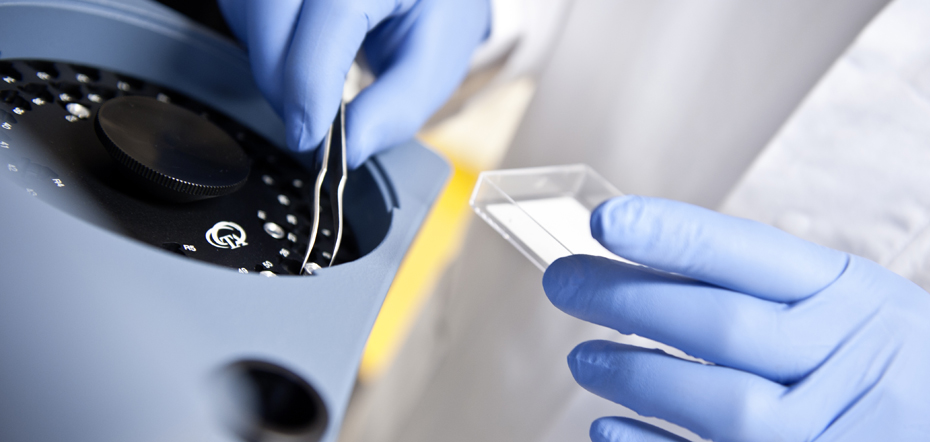

GILYOS has a comprehensive expertise in the field of physicochemical characterization of formulations in the liquid / frozen state. Such information is of integral importance to better understand product behavior during freezing, freeze-drying and long-term storage.
The measurement of glass transitions (Tg‘) or eutectic temperatures (Teut) is routinely performed in the (pharmaceutical) industry as a basis for rational freeze-drying cycle design. What makes an analysis carried out by GILYOS different? We simply extract much more information from thermal analysis methods. For example, we quantify the degree of crystallization or study the crystallization tendency of excipients during freezing and translate this information into actual freeze-drying runs.
Physicochemical analysis further allows the characterization of (unknown) formulation compositions.

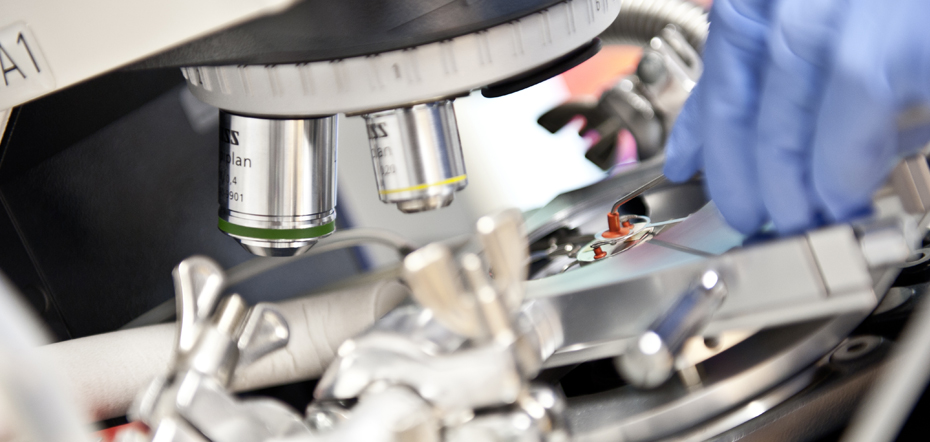

GILYOS is known as one of the leading experts for Freeze Dry Microscopy. FDM allows us to study the freeze-drying behavior of a formulation in micro-scale under controlled temperature and pressure. The main purpose of FDM is to study morphological changes in the drying product as a function of temperature using a microscope. At a temperature characteristic for each formulation, the dried product will undergo first structural changes (“onset of collapse”, Toc). Product temperatures during primary drying must then be controlled below Toc to achieve optimum final product quality attributes.
We are particularly specialized in examining the temperature range between “onset of collapse” and “full collapse” (denoted as “microcollapse region”) which has become of tremendous importance for enhanced process optimization, robustness testing and QbD in freeze-drying.



Freeze-drying cycles must be developed based on product requirements and cycle development should avoid trial-and-error loops. GILYOS has a proven track record of successfully accomplished cycle developments for various pharmaceutical, biopharmaceutical and diagnostic products (e.g. proteins, peptides, nanomaterials, collagen, small molecule drugs, etc.). Our know-how also covers a variety primary packaging materials (vials, syringes, carpoules, PCR-plates, blisters and others), bulk freeze-drying and the use of trays (steel, plastic, aluminum) in the process.
Most importantly, cycle development at GILYOS focuses on all three phases of the freeze-drying cycle, not not only on primary drying. To accomplish our goal of a custom-made, rational and efficient cycle design for our customers, we use highly innovative Process Analytical Technology (PAT) tools.

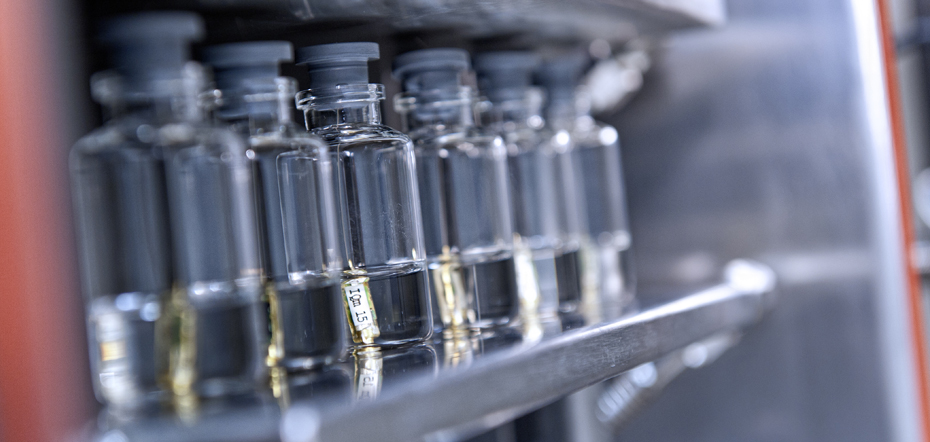

GILYOS implements Process Analytical Technology tools to gain more insight into both product and process. GILYOS even maintains an active in-house research program in the field of PAT for freeze-drying and serves as an industrial reference site for some of these technologies. In times of increasing demand for freeze-drying capacities, such tools offer a great opportunity for our customers to reduce cycle time for established products to a minimum.
Among others, our current key PAT tools are as follows: SMART™ Freeze Dryer technology used to optimize freeze-drying cycles during a single laboratory experiment. ControLyo™ controlled nucleation on-demand technology which fills a gap for additional cycle time reduction and expedite scale-up. TDLAS (LyoFlux® 200) and TEMPRIS also assist us to establish the framework for a smooth cycle transfer from the laboratory to pilot or production scale units.



Dr. Henning Gieseler, CEO of GILYOS, is one of the pioneers in the field of QbD in freeze-drying. His habilitation thesis entitled “Quality by Design (QbD) in Freeze-Drying Using Advanced Process Analytical Technology (PAT)” highlights the importance of the interrelationship between product and process attributes in freeze-drying science. Important factors are, for example, the rational design of a cycle robustness testing protocol for freeze-dried products and the evaluation of the process design space.
GILYOS offers individualized support when implementation of a QbD concept for freeze-drying is desired. As part of a development alliance, we can further support customers in cases where a final PAT drug product submission filing is targeted.

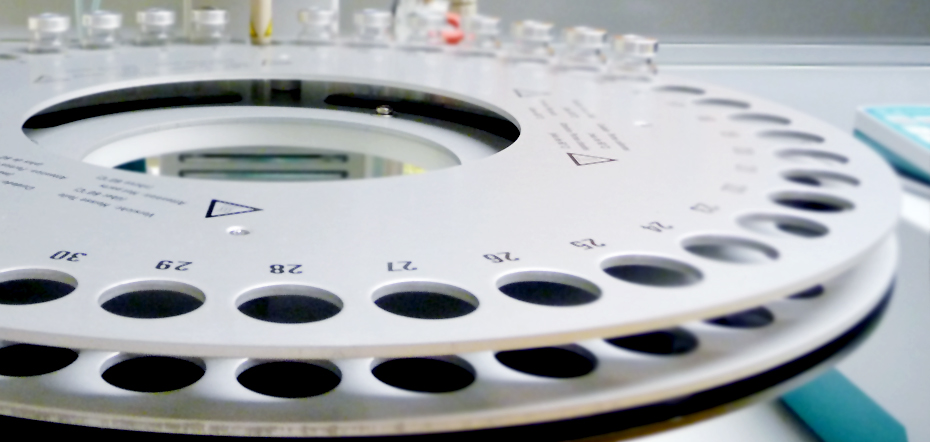

Besides 100% visual inspection of the final product (defect mapping) or determination of reconstitution times, GILYOS offers a full range of analytical methods to characterize the solid state product characteristics after freeze-drying.
Modulated Differential Scanning Calorimetry (MDSC) is frequently used to study glass transitions in the product. For crystalline and partially-crystalline systems, a combination of X-Ray Powder Diffractometry and MDSC allows a full quantification of product crystallinity. Moreover, the residual moisture content of freeze-dried products, as determined by Karl-Fischer titration, can be of tremendous importance for API stability. A customer-specific method development for Karl-Fischer (e.g. oven method) is part of our services. Note that it is always recommendable to combine solid state and morphological characterization procedures.

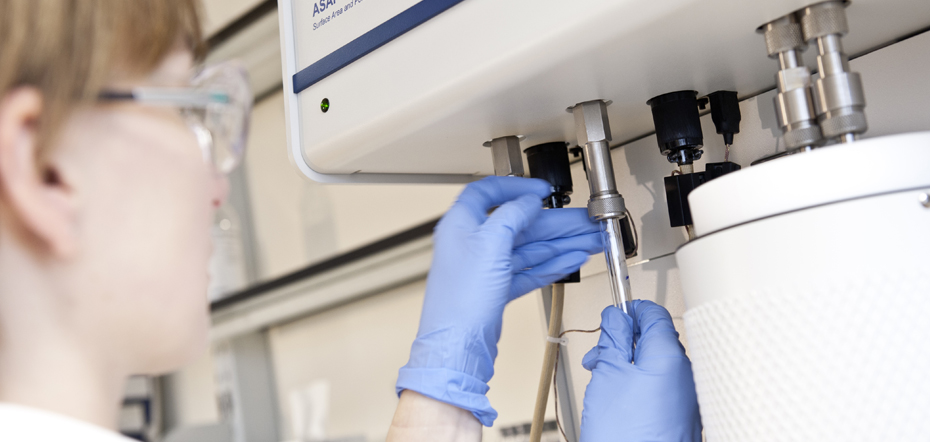

The morphology of a freeze-dried product is formed during the freezing step in a freeze-drying cycle. For optimum process and product results, it is desireable to generate a homogenous pore-size distribution with a large (average) pore diameter during the freezing step. Product morphology greatly influences the resistance to water vapor flow during primary drying which in turn strongly affects mass flow rates (process-relevant). If the product temperature during primary drying exceeds the collapse temperature, product morphology changes and can impact the final product quality attributes (product-relevant).
GILYOS uses a variety of analytical procedures to fully assess the morphology of freeze-dried products. One of our key areas of expertise are Specific Surface Area measurements on which we even maintain an active research program.

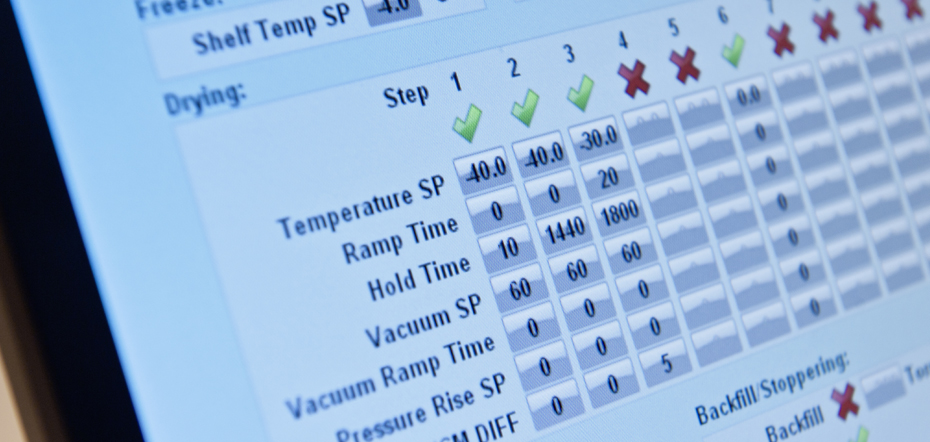

One of the greatest obstacles in freeze-drying is scale-up of laboratory experiments to pilot or production. First, this transfer typically implies a change from non-GMP to class 100 conditions which greatly affects the “freezing behavior” of the product. Even if laboratory experiments are performed under GMP, one of the biggest problems to overcome is the difference in design and performance of the equipment. Only thorough characterization of both formulation and process, along with the understanding of heat and mass transfer and implementation of complementary PAT, is the right basis for successful scale-up.
Examples of services which GILYOS offers to customers are as follows: identification of a Contract Manufacturing Organization (CMO) for your product, scale-up from our site to the desired CMO production site, Operational Qualification, performance testing, troubleshooting for manufacturing processes in small scale.

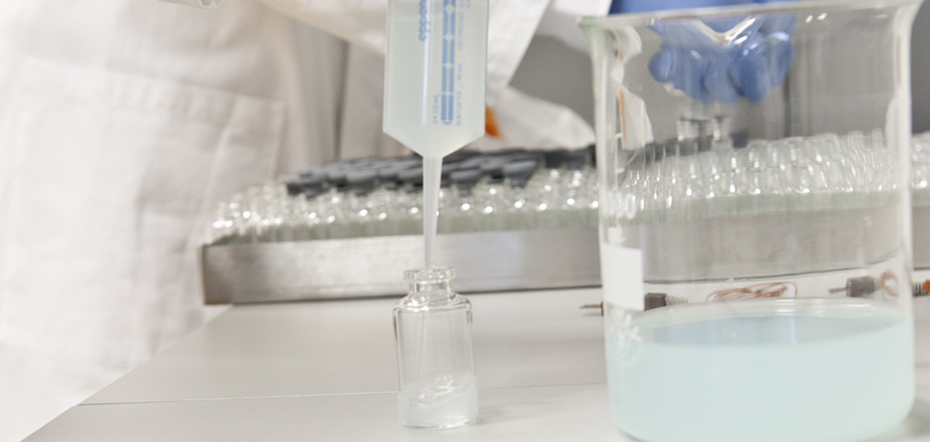

GILYOS as a company has dedicated itself to promoting freeze-drying science. We at GILYOS maintain an active in-house research program which also includes academic training of our young researchers. On a regular basis we offer the opportunity to share some of our expertise through seminars and workshops.
On an annual basis, GILYOS conducts Lyoscopedia in Würzburg. This one-day seminar typically covers basic principles of freeze-drying, followed by more specific areas of interest (e.g. formulation science, physicochemistry of materials, analytical procedures, process considerations, scale-up, etc.).














